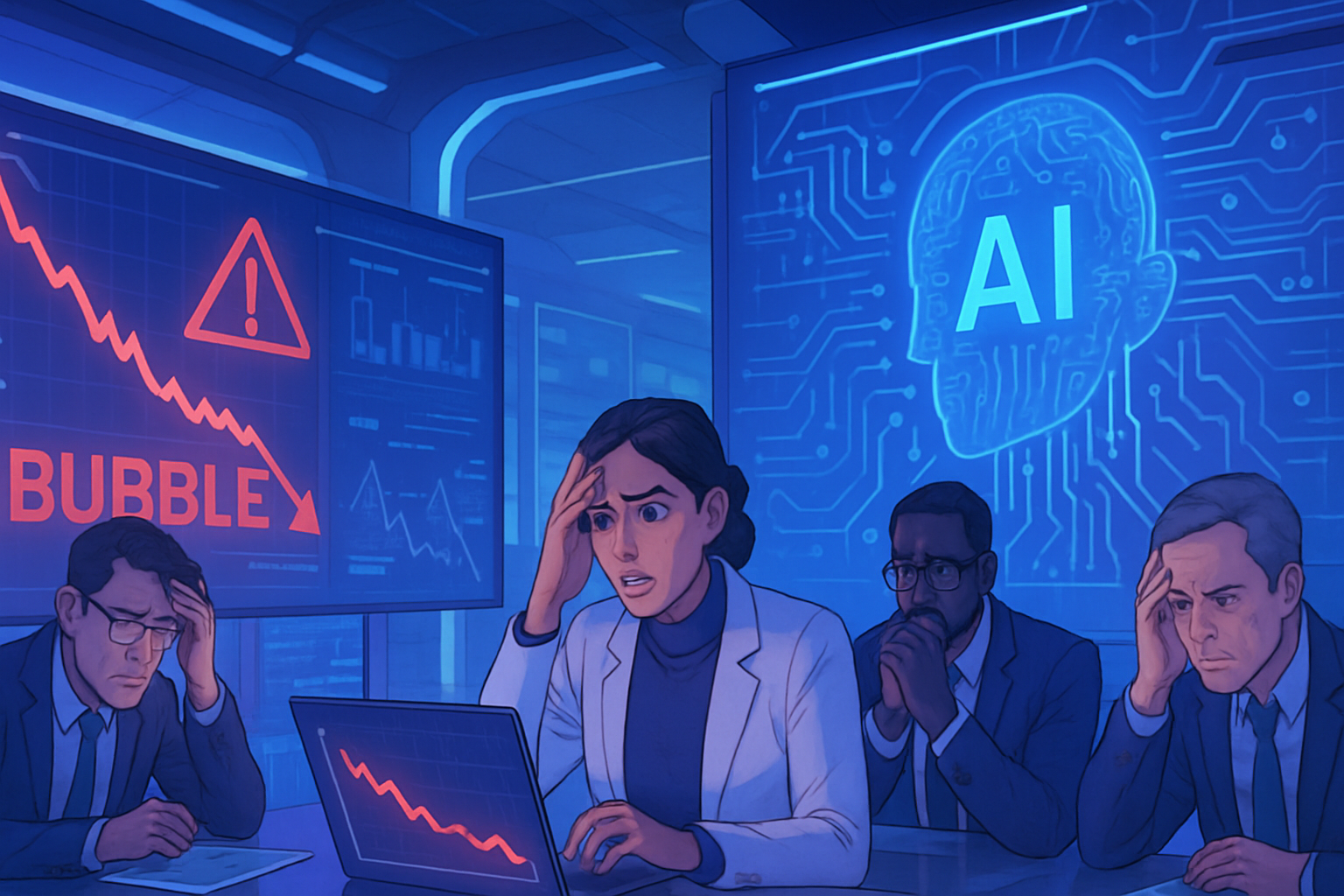The rapid emergence of Artificial Intelligence resonates like a resounding alarm for economists. A consensus is forming around an increasing risk of a financial bubble, with frantic investments creating a speculative psychosis in the markets. AI companies, despite their potential, are showing a still wavering profitability, fueling fears of an imminent correction.
A Sudden Enthusiasm for Artificial Intelligence
Market players find themselves at the heart of an unprecedented frenzy, accompanied by colossal investments in the field of artificial intelligence. Stock valuations are soaring, while only a few manufacturers, such as Nvidia, seem to be reaping the actual profits. This raises serious concerns among economists regarding a possible financial bubble. OpenAI’s CEO, Sam Altman, expresses growing concern, mentioning an over-excitement among investors regarding this promising technology.
Warnings from Carlota Perez
The economist Carlota Perez, known for her studies on financial bubbles, also predicts an imminent crash related to AI. According to her analyses, the current pattern resembles previous bubbles, where profits are scarce despite high valuations. “High capital gains and low profits constitute a typical bubble situation,” she states gravely. History shows that every technological revolution spawns a euphoric phase followed by severe corrections.
Historical Echoes
Carlota Perez has explored various industrial revolutions, including that of the spinning jenny, the steam locomotive, and the microprocessor. Each triggered financial speculation that led to crashes. The same pattern is currently observable in the AI sector, with massive oversized investments leading to a disconnection from economic realities. Financial players seem to be profiting from this situation, reinforcing concerns about an imminent bubble.
Challenging Volatility
Markets are particularly realistic about the comparison between the current AI bubble and the information technology bubble that burst in the early 2000s. Torsten Slok, chief economist at Apollo, believes that the AI bubble is today larger than that of the 1990s. This phenomenon calls for caution as investors’ enthusiasm could turn into sudden disillusionment.
Future Outlook
The economic outlook regarding AI raises troubling questions. Considerable projects require a massive injection of capital, but profitability remains unclear. Excessive speculation and absurd valuations prompt questions about whether tangible profits will ever follow. A backlash in financial markets seems inevitable, leaving investors facing a delicate dilemma.
Institutional Responses
In light of rising concerns, institutions are beginning to react. Regulatory measures aimed at framing investments in new technologies are being heard. The economic landscape could drastically change if governments and regulators take steps to control this runaway speculation. Without interventions, a deflationary spiral could emerge, signaling major disillusionment in the sector.
Tenuous Links with Economic Reality
As growth projections continue to pour in, analysts highlight interconnections between economic reality and the financial market of AI. New technological developments, while revolutionary, must lead to concrete applications. Consequently, the need for a more rigorous assessment of emerging companies is pressing. Thus, the path to true AI maturation remains fraught with obstacles.
Agitation on the Financial Front
The debate on AI and its impact on the global economic landscape should continue within investment circles. Technology companies must prepare for a period of vigilance and strategic reflection. For investors, navigating this potential storm will require thorough examination and a willingness to quickly adapt to the changing realities of the market. The race for innovation could, in this context, hit limits imposed by sector volatility.
For more information, consult relevant articles like those on Microsoft and its security vulnerabilities, DeepSeek and technological stagnation, or the technological connection in China. Critical analyses like those on the first quarter of the 21st century or the rise of tech bros will enrich your perspective.
Questions and Answers on Artificial Intelligence and the Financial Bubble
What is a financial bubble in the context of artificial intelligence?
A financial bubble occurs when there is a significant overvaluation of assets related to artificial intelligence, characterized by excessive investments, irrational speculation, and inflated valuations compared to the real profits generated.
What are the telltale signs of a financial bubble related to artificial intelligence?
Signs include very high stock valuations relative to earnings, intense speculation without solid economic foundations, disproportionate investments in startups with little or no revenue, and a general investor enthusiasm for this technology.
Why are economists concerned about the impact of artificial intelligence on the economy?
Economists fear that the enthusiasm for AI could lead to financial instability, reminiscent of past crises. They stress that if profits do not follow the rise in investments, it could trigger a sudden crash in the markets.
What roles do investors and users play in this dynamic of financial bubbles?
Investors are often the first to benefit from the increase in the valuation of their assets, while users may indirectly benefit from technological advances. However, the AI companies themselves often struggle to generate substantial profits in this speculative environment.
How can the history of economic crises inform our understanding of bubbles related to AI?
Past events, like the burst of the internet bubble, illustrate how innovations can initially attract massive investments without creating sustainable profits, leading to brutal corrections. These lessons underline the need for vigilance in assessing AI-related startups.
What is the link between technological innovation and financial bubbles?
Technological advancements often lead to phases of intense speculation, as investors anticipate a significant return on investment. However, in the absence of solid economic fundamentals, speculation can quickly outpace reality, fueling a bubble.
What could a crash mean for the future of artificial intelligence?
A crash could slow investment in the AI sector, hindering research and development. It could also force market players to focus on more sustainable and profitable business models, instead of simple speculation.
What is the importance of regulation in the field of artificial intelligence in the face of the financial bubble?
Proper regulation can help stabilize the market by minimizing excessive speculation, protecting investors, and ensuring that technological innovations are based on sound economic foundations.






